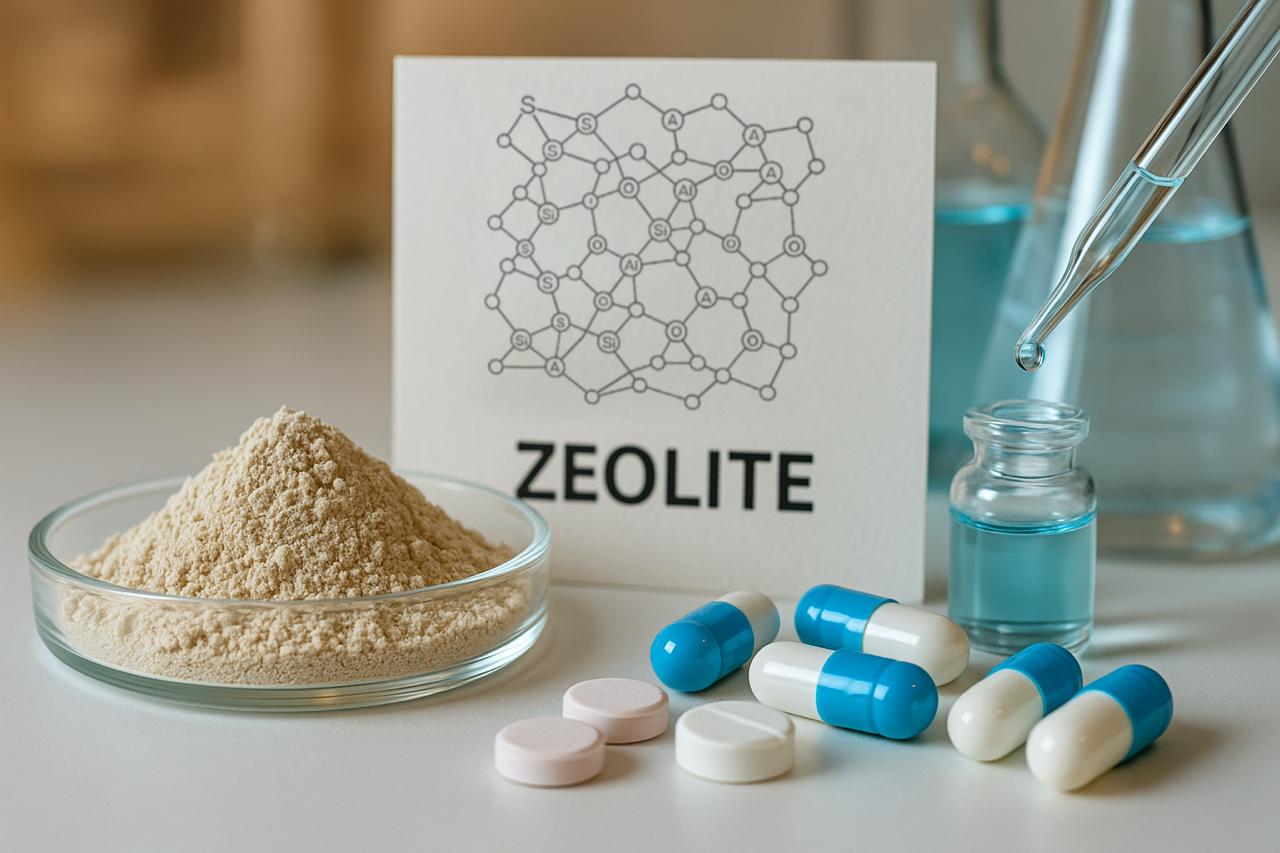
Zeolites, porous aluminosilicate minerals with a crystalline structure, are valued for their properties such as high surface area and ion-exchange capacity, making them versatile across various industries. These materials play a key role in water and wastewater treatment, oil and petrochemical refining, detergent production, agriculture and livestock, construction, food and pharmaceutical industries, and as industrial catalysts. Their selective adsorption and stability have transformed zeolites into a multifunctional tool.
They have a framework structure composed of SiO4 and AlO4 tetrahedral units linked together by oxygen atoms. This structure creates cavities and channels of molecular dimensions, granting zeolites their molecular sieving properties. The key characteristics of zeolites include:
1. High Surface Area: Their porous structure provides a large internal surface area, ideal for adsorption and catalysis.
2. Ion Exchang: The presence of cations such as Na⁺, Ca²⁺, and K⁺ in their structure allows ion exchange with other cations, useful for removing contaminants or stabilizing pharmaceutical molecules.
3. Thermal and Chemical Stability: Zeolites withstand high temperatures and harsh chemical environments, making them suitable for industrial processes.
4. Molecular Selectivity: The precise pore sizes enable the separation of molecules based on size and shape.
These properties make zeolites a versatile tool in pharmaceuticals, from controlled drug delivery to the purification of raw materials.
Applications of Zeolites in Pharmaceuticals
Zeolites have diverse applications in the pharmaceutical industry, with the most significant outlined below:
1. Drug Carriers and Controlled Drug Delivery:
One of the primary uses of zeolites in pharmaceuticals is as drug carriers. Their porous structure allows the loading of drug molecules into their cavities and channels, enabling controlled and targeted drug delivery.
2. Adsorbents in Pharmaceutical Purification:
Due to their selective adsorption capabilities, zeolites are used to remove contaminants and impurities from pharmaceutical raw materials. In drug production, heavy metals or unwanted organic compounds can compromise product quality. Zeolites adsorb these impurities, enhancing the purity of pharmaceutical substances.
3. Catalysts in Drug Synthesis:
Zeolites serve as catalysts in chemical reactions for synthesizing pharmaceutical compounds. Their acidic properties and molecular selectivity make them suitable for reactions such as isomerization, alkylation, and hydrogenation.
4. Medical Oxygen Production:
Zeolites play a critical role in medical oxygen concentrators. In pressure swing adsorption (PSA) technology, zeolites (such as Lix or 13X) separate nitrogen from air to produce high-purity oxygen. This oxygen is vital for patients with respiratory conditions or for use in hospital operating rooms.
5. Antimicrobial Applications:
Zeolites modified with metal ions like silver (Ag⁺) or copper (Cu²⁺) exhibit strong antimicrobial properties. These zeolites can be used in wound dressings, antibacterial coatings for medical equipment, or disinfectant pharmaceutical formulations. Their antimicrobial effect results from the gradual release of metal ions, which react with microbial cell membranes, destroying them.
6. Fillers in Pharmaceutical Formulations:
Zeolites are used as fillers or bulking agents in tablets and capsules. Chemically inert and capable of absorbing moisture, they enhance the stability of pharmaceutical formulations. Additionally, zeolites improve powder flowability during tablet manufacturing.
Advantages of Using Zeolites in Pharmaceuticals
The use of zeolites in pharmaceuticals offers numerous benefits, including:
- Safety: Natural zeolites and some synthetic variants are biocompatible with low toxicity, making them suitable for pharmaceutical applications.
- Cost-Effectiveness: Natural zeolites are abundant and inexpensive, and even synthetic zeolites are produced at reasonable costs.
- Versatility: Zeolites can be applied at various stages of drug production, from synthesis to formulation and delivery.
- Environmental Compatibility: Their recyclability and reusability make zeolites a sustainable option for the pharmaceutical industry.
written by: Sara Ebrahimi
















